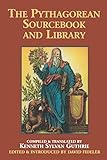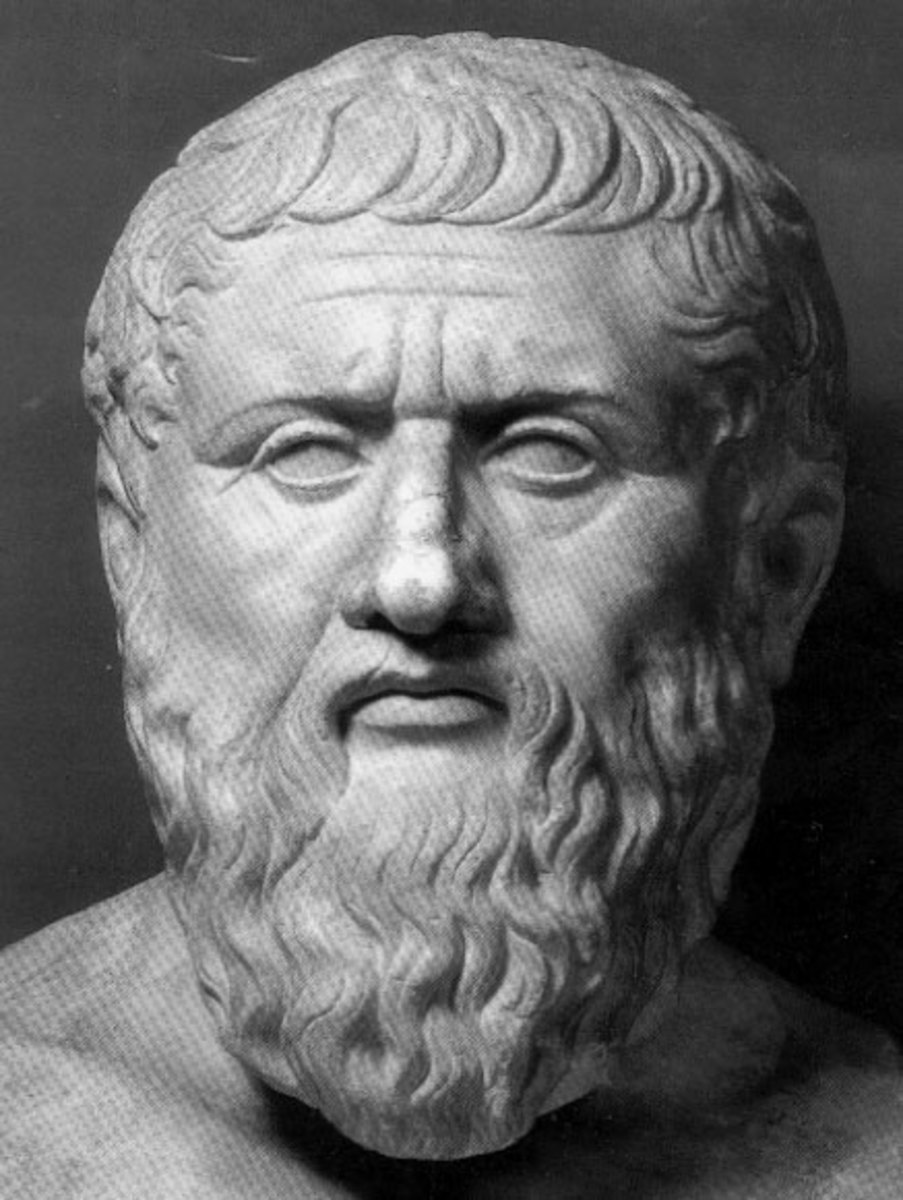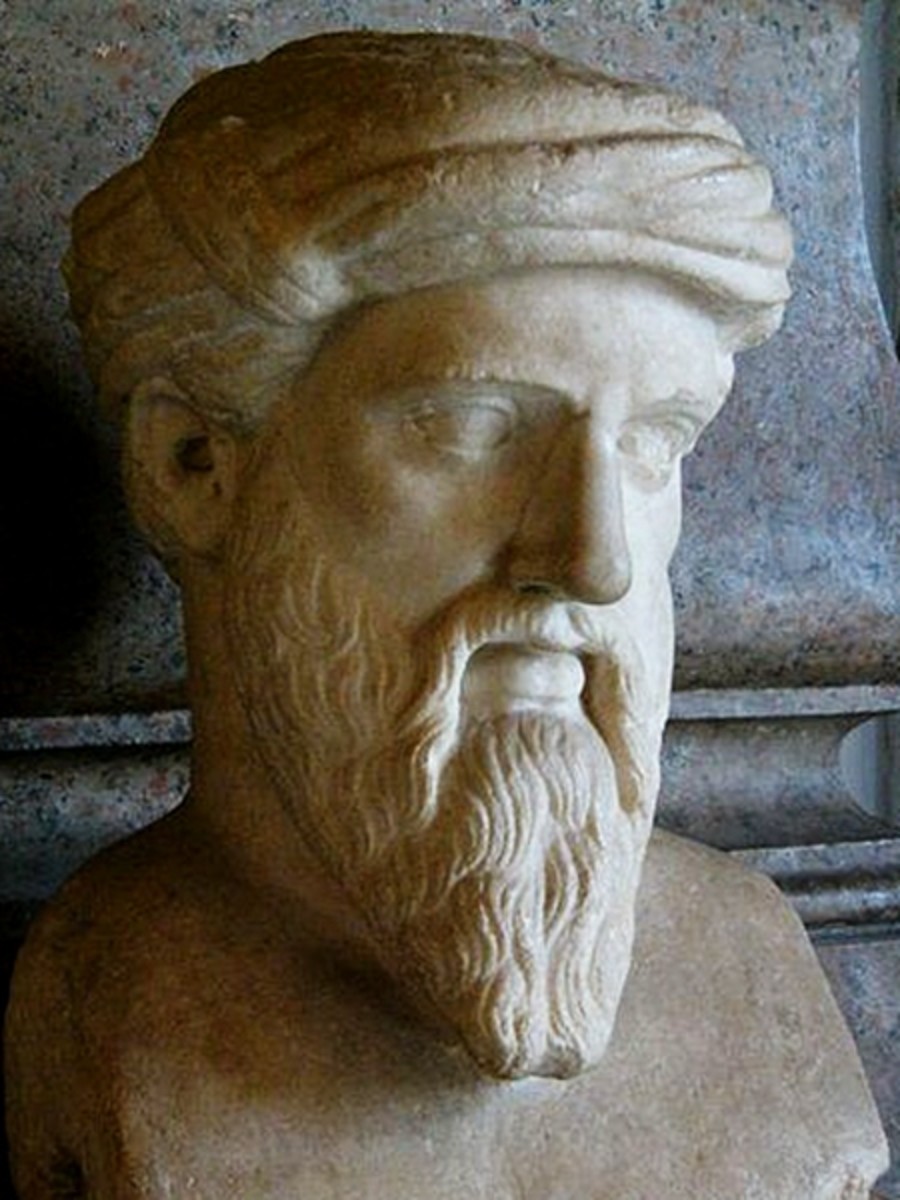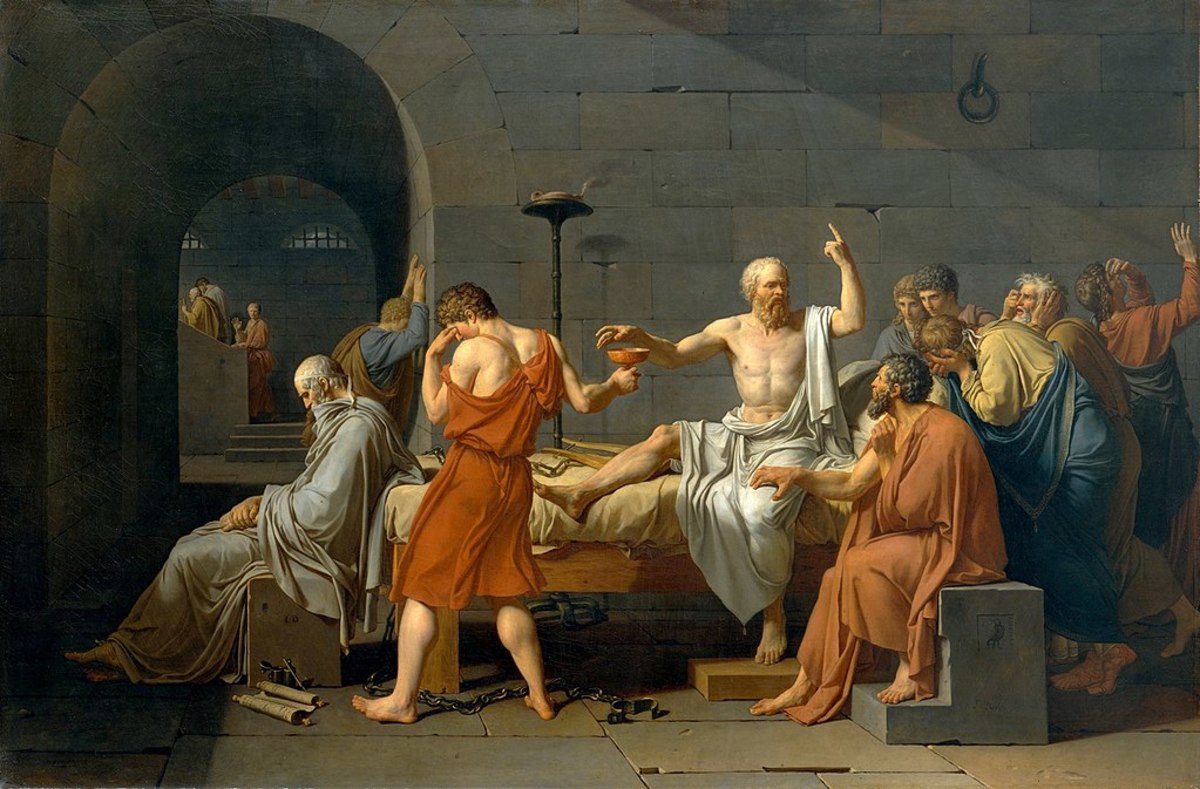Pythagoras, the Pythagoreans, and Plato

Plato is known for his extensive and exemplary writings that influenced philosophy and thought well into our time, but what about the group of thinkers and man who originally came to many of the conclusions Plato is renowned for—Pythagoras and the Pythagoreans? Most people know the term “Pythagorean” because any basic geometry class covers the Pythagorean Theorem. Beyond that, this group and their leader, Pythagoras, seems lost to most eyes of history and philosophy.
Many vegetarians and vegans quote Pythagorean texts (written after the time of Pythagoras himself, because as Socrates, he did not write) because he invoked a very strict diet based on religious beliefs and self discipline. He was considered an expert on religious tradition, and had extremely devout followers. Most importantly, Pythagoras and the Pythagoreans are known for the belief in Western reincarnation and immortality of the soul.
To anyone who has thoroughly read Plato’s Phaedo, this should sound familiar.
It was Aristotle who wrote that Plato’s philosophy was inspired by the Pythagoreans. So why have the similarities between Plato and Pythagoras been mostly ignored for the past few millennia?
Plato wrote. Whether strictly about Socrates, or the later dialogues imbued with his own philosophy, Plato has his own written record. The Pythagoreans were known to be a secretive society, much like a cult today, and left little of their own work.
The Pythagorean society was very structured and selective. There were two types of members, those who were part of an inner circle, and outer, limited members. The inner circle, or Cenobites, would give up all of their possessions. Gathering, they would sit, think, and work through complex problems. It is this unidentified group that came up with many of the complex mathematical solutions credited to Pythagoras. They did not communicate openly with those outside of the society, and so their work remained extremely secretive. The second group, the hearers, retained all of their possessions, but did not engage as the Cenobites. Instead, they listened to the speeches of Pythagoras.
By this point, a wary reader will ask, “If no one wrote anything down, how do we know any of these people ever existed?” There are historic records of the group, but most of it is shrouded in mystery. Pythagoras lived in the 6th and 5th centuries B.C., while most of the writings about Pythagoras and the Pythagorean society do not come about until later. Remember, Socrates also did not write and was later popularized by his student, Plato.
A student of the thought, Philolaus can be understood as Pythagoras’s Plato.

Philolaus was a known Pythagorean and the one of the main reasons we retain information on the Pythagorean society today. He is credited the first person (at least in Western thought) to believe the earth was not the center of the universe.
Others wrote on Pythagoras, but a large problem arises in the writings: many count Pythagoras as a divine of thought, and do not hold proof of all they claim. As Iamblichus calls him, “divine Pythagoras,” many others write of god-like qualities of Pythagoras. Without any of his own or more realistic writings from within the Pythagorean society to discuss the views of his system and the secrecy of its members, it becomes difficult for students today to come to grasps with the true definition of Pythagoreanism.
It is in Iamblichus’ Life of Pythagoras that he speaks of Pythagoras’s abilities to calm animals like those of Orpheus, claiming that he soothed the Daunian Bear and by “[…]compelling it by an oath to leave alone living beings, he sent it away.” It is through stories such as this the true Pythagoras, and the Pythagorean society in general, has become lost beneath tale and legend.
That does mean there are no historical accounts of Pythagoras for present day to rely on. The same writers, such as Iamblichus and Porphyry, and even Aristotle, give the present day some hints, clues, and facts about the ancient philosopher.
Pythagoras was recorded to have been born in Samos during about 570 B.C.E., but in his life he became a great traveler. Sources have him in many locations, almost in a two-places-at-once sense. Pythagoras was said to have studied in Egypt with the priests (that would have him) for extended periods, and the he was said to reside with the Chaldeans and even to have studied in Persia. It is from this study all over the continents known to him that Pythagoras is believed to have gained such vast, philosophic insight as is credited to him (and Plato or Socrates).
Pythagoras and Pythagorean soceity are again, known for their secrecy. It is believed Pythagoras had a cave he devoted entirely to philosophic thought in Samos, and that he lived inside. He traveled to Italy, specifically Croton at about the age of 40.
But Pythagoras is not believed to have enjoyed a blissful life of study into natural death (and acceptance into the circle of birth). His fate would be cruel and at the hands of the people who had once openly welcomed him.
Cylon, a Crotonian with power and money, wished to be accepted by the Pythagorean fellowship as a member and was refused. In anger, he gathered his forces in a plan to destroy that which would not have him. As Cylon plotted and readied, Pythagoras traveled to Delos, where his sick teacher Pherecydes needed nursing.
While Pythagoras was away, one day a group of followers and friends of Pythagoras were gathered in a house, going about their normal customs.
At once the followers of Cylon are said to have stoned the group, burning them in the house, where only two escaped. Some also say Pythagoras was actually in the house at the time, and his followers threw their bodies to the ground, giving him a clear path out. No matter how it happened, or if Pythagoras was present, he quickly found himself rejected as he tried to enter cities, and Pythagoras was ostracized by the people who had so shortly before considered him a great speaker and friend. It is written he lost 40 friends in the initial attack, and his followers were slowly killed and hunted by the growing Croton mob.
For anyone looking to research further and read original documents, here are the two best books out there:
And a great collection of Plato's work with excellent translations:
Cornered, Pythagoras ended in the temple of the Muses, away from Croton, in Metapontum. It is heavily understood that he died there, though it is contested whether it was suicide over the death of his friends or forced starvation. Pythagoras is said to have stayed there for forty days, slowly starving to death.
And as Pythagoras and the Pythagorean society died, much of their secret findings died with them. What we know today are only the small portions that got out, or were spread, by the few surviving followers who isolated themselves during the Pythagorean purges.
Philolaus is one of the few Pythagoreans who left behind types of records, and was known to Plato during the writing of the Phaedo, as he is in the beginning. And no wonder—the Phaedo is one of Plato’s most Pythagorean inspired texts.
Philolaus as well wrote one book or three, which are said to have deeply influenced Plato’s Timaeus. As we have lost so many writings, there is not much in the way of study to decide.
Pythagoras, by his own means or those his protégés, deeply influenced a large portion of Plato’s work. It can be seen in the developing Pythagorean influences throughout the middle and later dialogues of Plato, and it deserves far more recognition than it receives.










